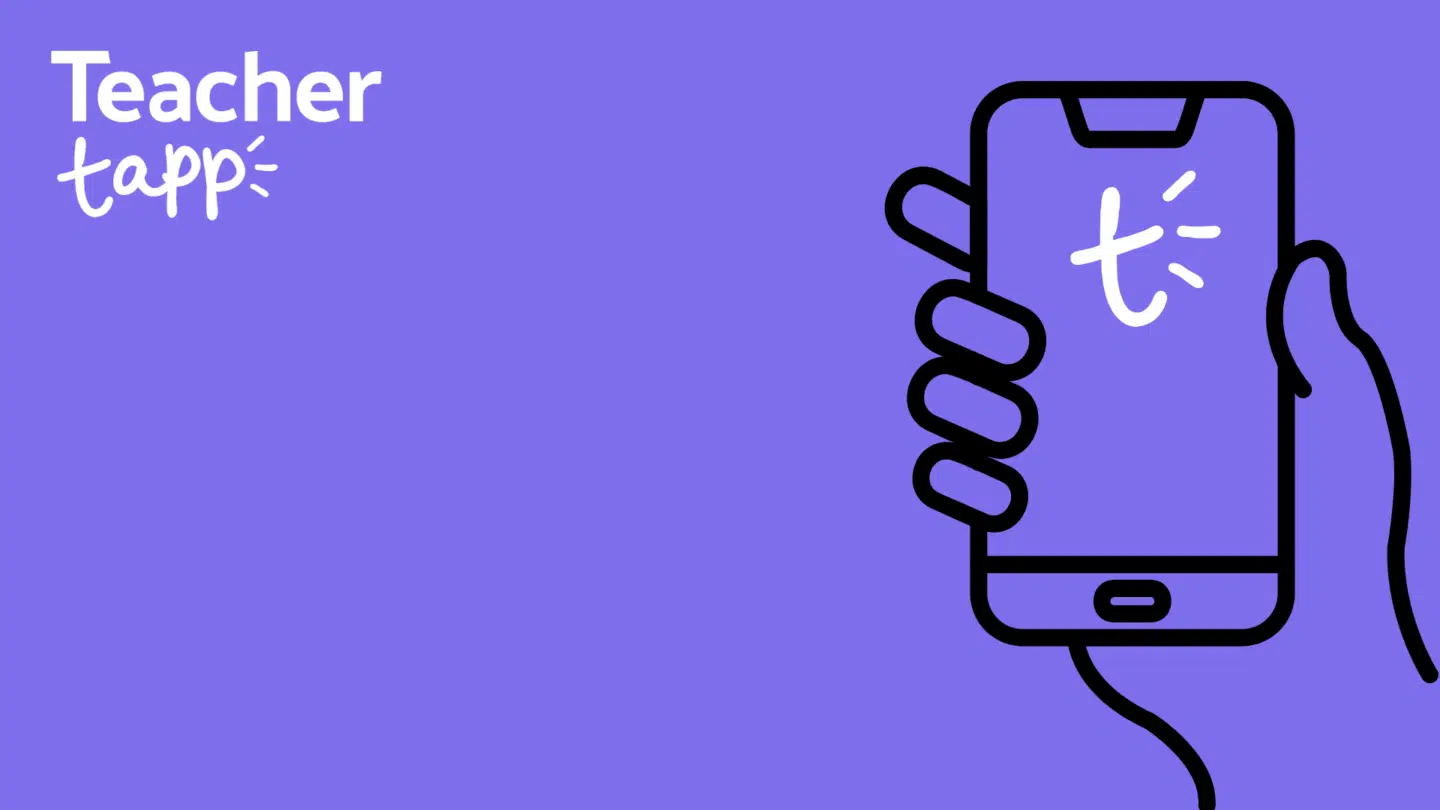
Hello Teacher Tappers!
The October half term is behind us, but many of you used the time to catch up on some critical life admin: 31% took a trip to the hairdressers, 19% had a doctor’s appointment, and 16% saw the dentist.
There was a tiny 0.5% who managed to squeeze in trips to all of the above PLUS the optician, and car garage! Now that is super-organised!
Winners of the prize draw!
Last month, Tappers who answered 10 questions earned tickets into the prize draw to win £100 vouchers. Now is the time to check to see if you are a winner! Open your app and check the codes below to see if you will be sent a prize:
- billowing-disk-7767
- polished-river-5456
- lavender-night-7093
- coral-hat-6448
- ancient-dew-5692
- yellow-breeze-4959
- lime-meadow-1223
- fragrant-dust-9419
- azure-paper-8679
- sepia-pine-2657
Think you are a winner? Get in touch england@teachertapp.co.uk
Changes in behaviour
The Teacher Tapp behaviour tracker is back – and this time we’re looking at how behaviour has changed at your current school since you started.
Teachers in secondary schools are much more likely than primary teachers to report that behaviour has improved (26% vs 13%).
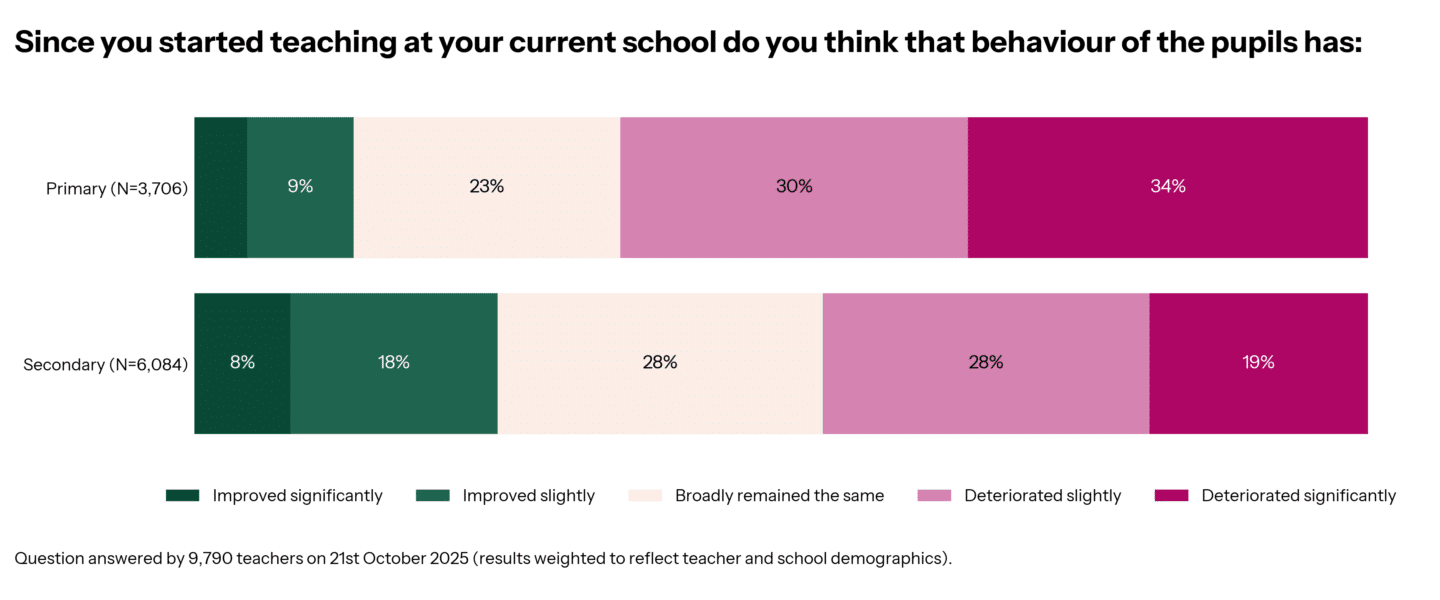
However, phase isn’t the only place we see differences in how teachers respond.
Teachers in the most disadvantaged areas are much more likely to report that behaviour has improved, compared to teachers in the most affluent areas (29% vs 16%).
Teachers in the most affluent areas are more likely than teachers in the most deprived areas to report that behaviour has deteriorated (57% vs 50%). This might reflect different school contexts, with behaviour improving most where schools have introduced new behaviour systems or support.
But what about those schools where things are more constant? Teachers in fee-paying schools are the most likely to report that behaviour has remained largely unchanged (38%), whereas teachers in the most deprived areas are the least likely to report the same (21%).
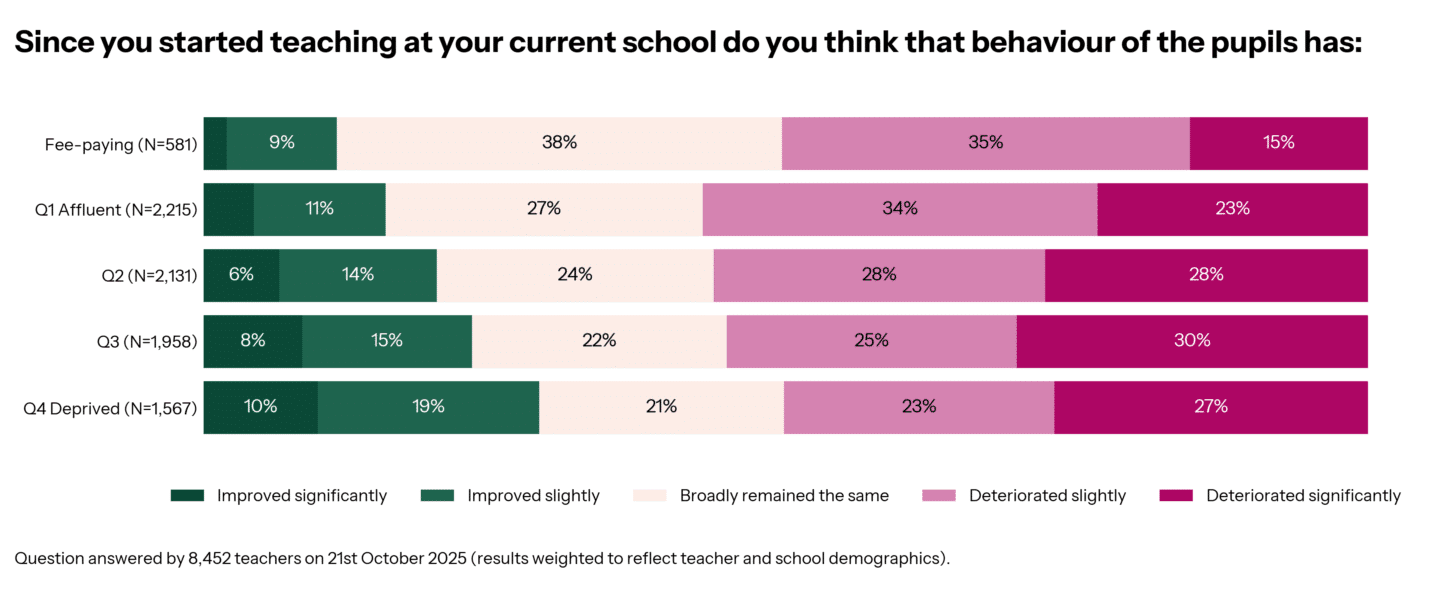
Now the second part of the autumn term is underway, keep an eye out for our future behaviour questions – and check back to see how your experience compares to the national picture.
Directed time
Teachers who aren’t on the leadership scale in local authority schools are expected to have 1,265 hours of directed time each year. Although academies can set different rules, many choose to use the 1265 hours to make expectations clear to staff.
However, when we asked non-leadership teachers, just 18% of primary and 39% of secondary had seen their directed time hours budget.
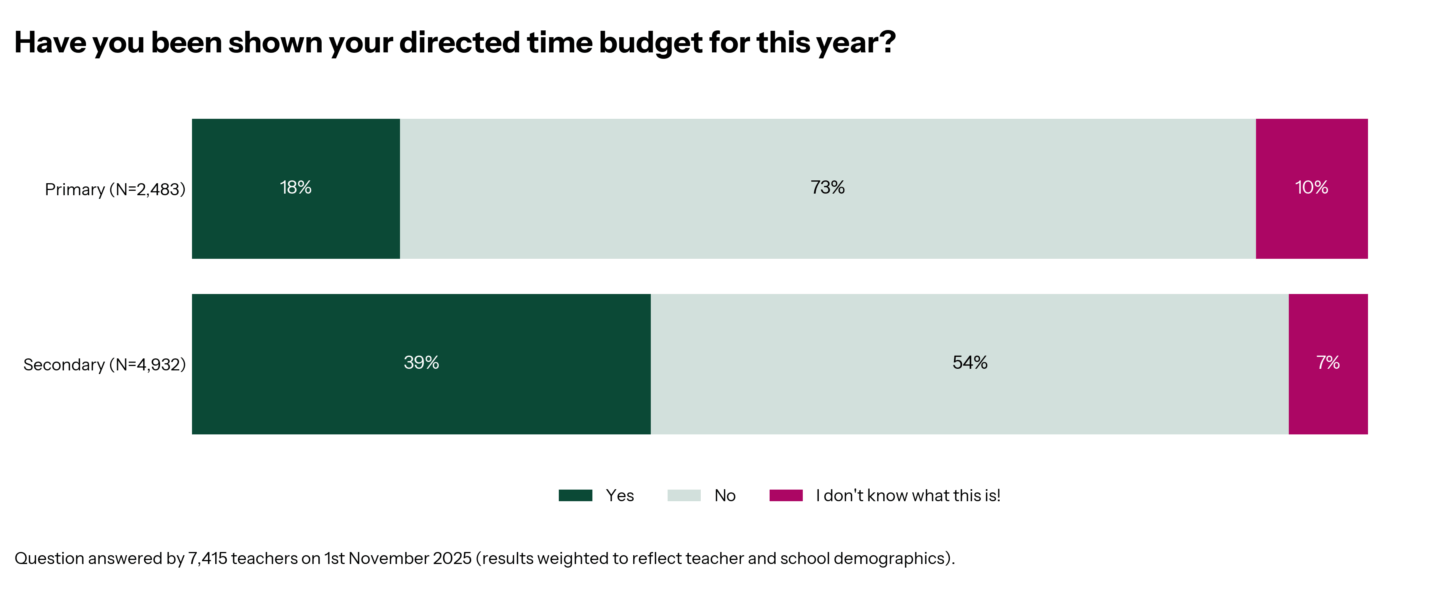
Among those who have seen their directed time budget, a significant number did not feel it accurately reflected their working hours (39% primary, 41% secondary).
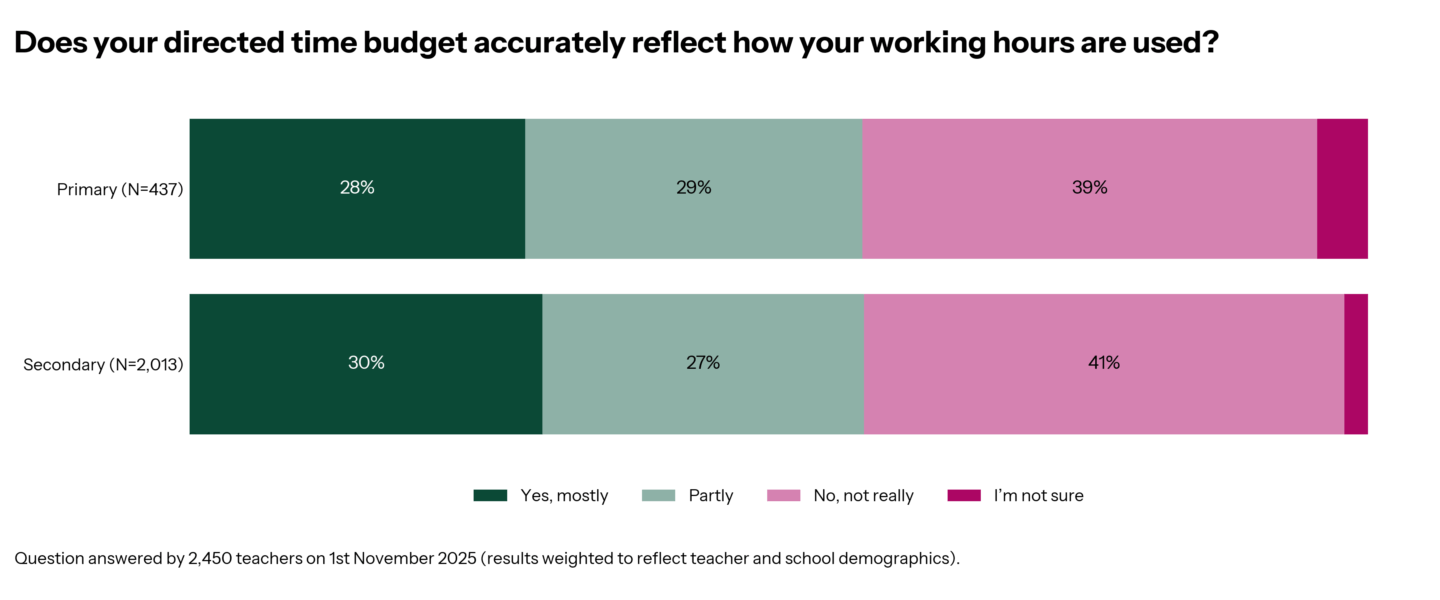
Non-teaching tasks surprise teachers
It’s no shock that so many teachers said “how much time goes on non-teaching tasks” was the biggest surprise about the job.
Almost half of primary teachers (49%) and two in five secondary teachers (41%) chose this option.
Next came how tiring it is — mentioned by 19% of primary and 22% of secondary teachers — followed by how often things change (16% and 15%).
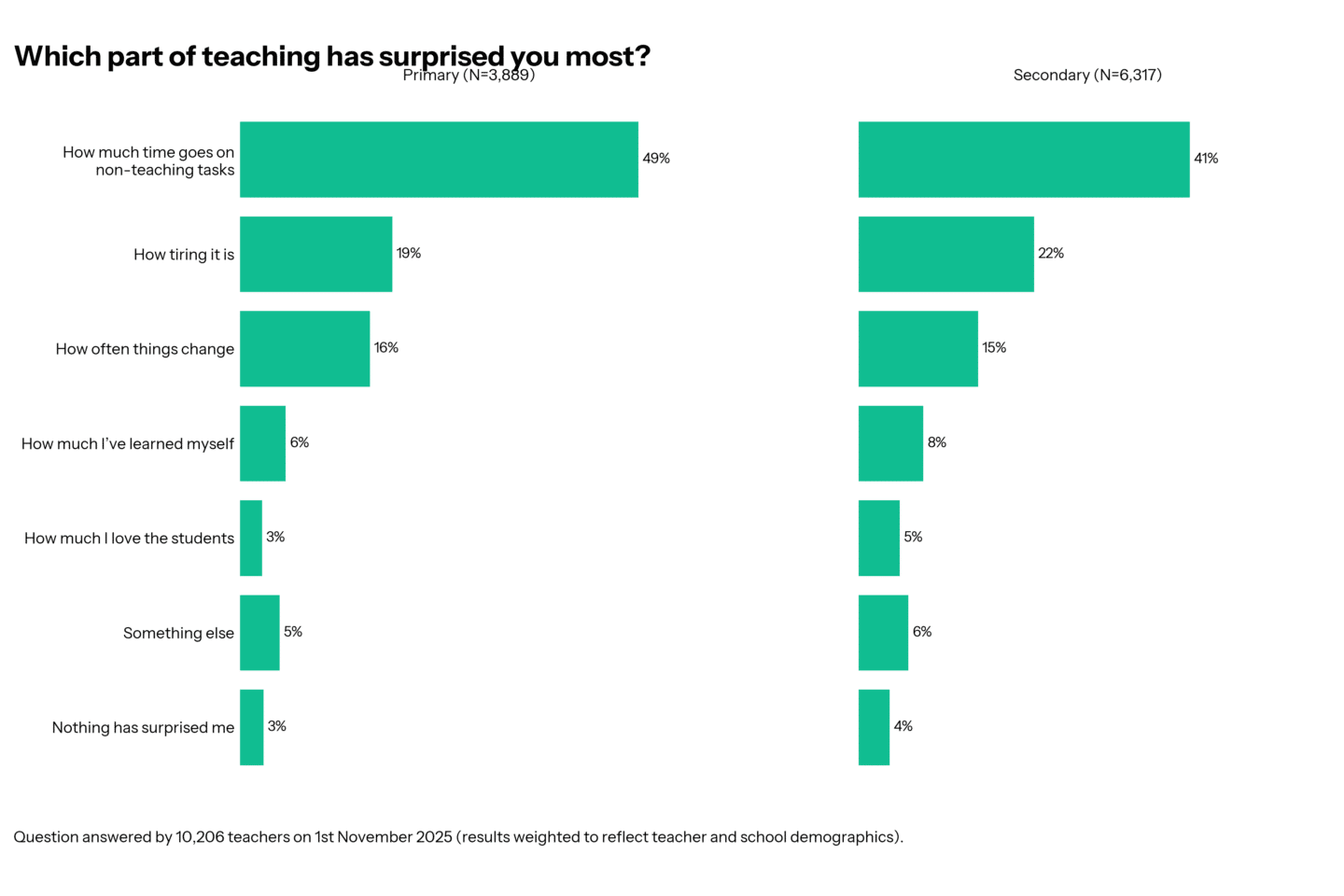
To find out more about directed time, you can read our handy Teacher Tapp guide here.
Merit marks
Most schools have some kind of point system — 87% of secondary and 66% of primary teachers said their school uses one. But what are these points collected for? And what do teachers think of them?
A Teacher Tapper got in touch a while ago, and asked if we had ever asked about systems in schools – and we hadn’t! So here are the results:
First off, certificates are the most common way to recognise merit marks (48% primary and 61% secondary), and then financial rewards are offered in 23% of secondaries, but in just 2% of primaries.
Non-uniform days are a more common reward for collecting merit marks in primaries than secondaries (22% vs 8%), but reward trips were more common in secondaries (46% vs 11%).
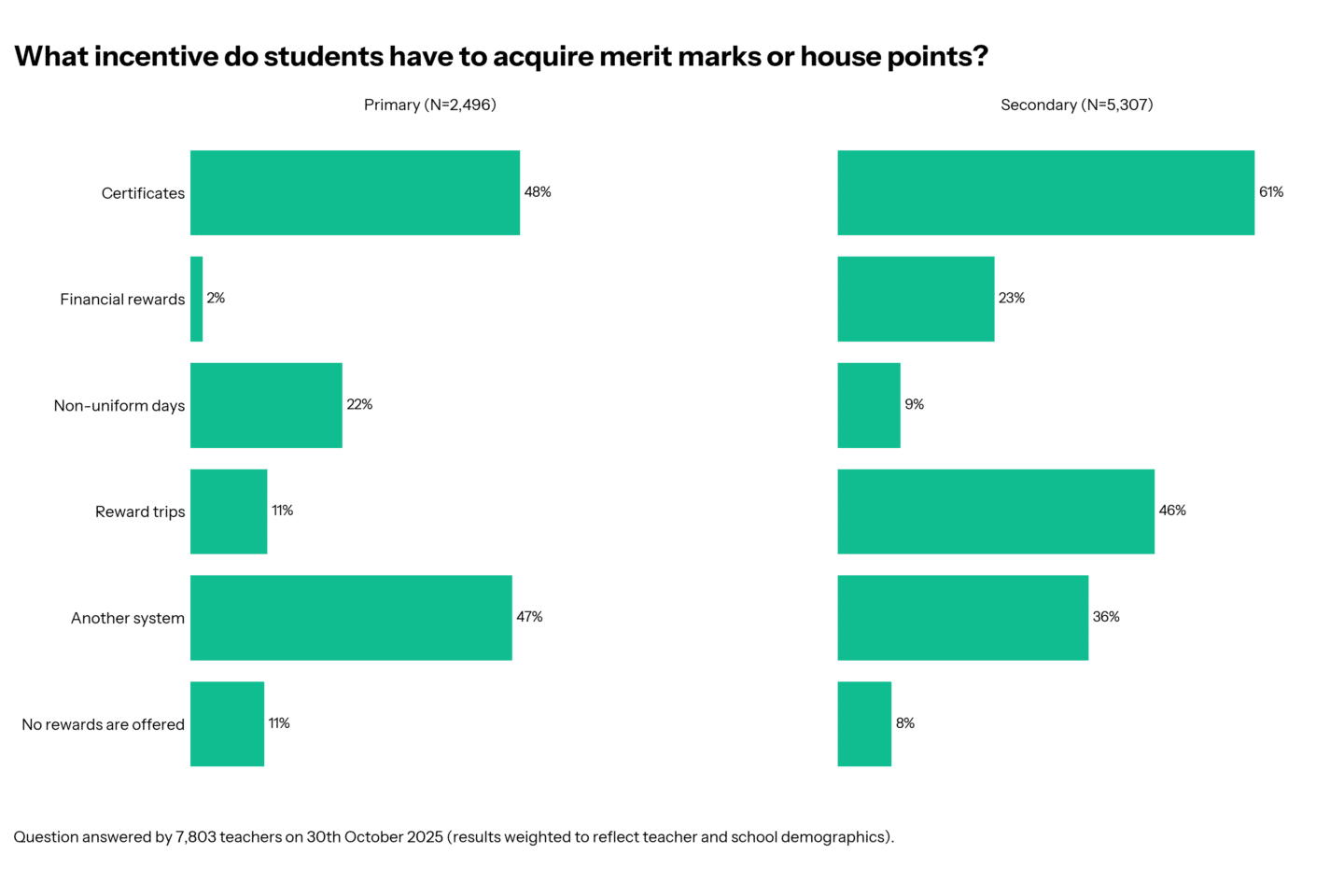
And if you’re thinking, gosh, what a lot of admin and organisation around these merit marks – then perhaps your next question might be – do they effectively motivate students?
On the whole, yes – teachers feel merit marks are a good way to motivate students. Primary teachers are very slightly less convinced than secondary (82% agree in primary vs 85% in secondary).
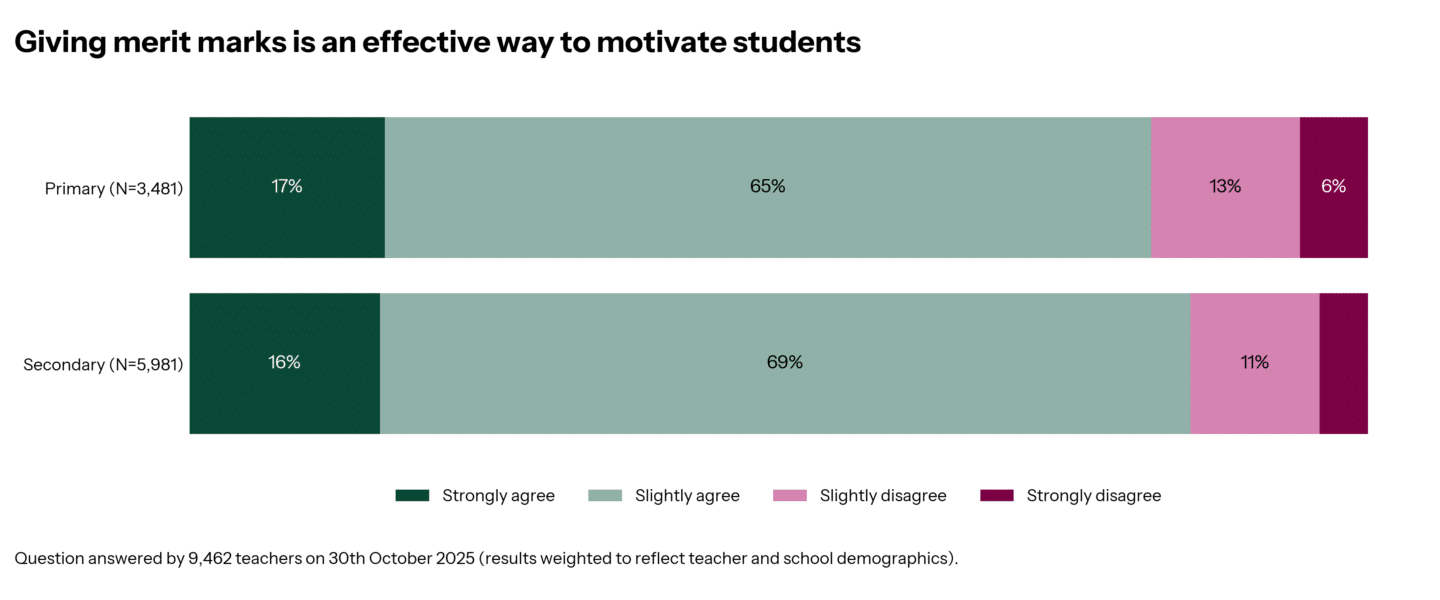
And just under a quarter (24%) of primary teachers in schools without merit marks would want their school to adopt them, and 31% of secondary teachers felt the same. So while they take time to run, most teachers do see them as worthwhile.
Do schools with merit marks have better-behaved students? Not necessarily. When we checked, teachers in schools with merit mark systems were actually slightly more likely to say learning stopped in their last lesson because of student behaviour (35% compared with 30% in schools without them).
Of course, this doesn’t mean the merit marks cause worse behaviour — it could simply be that schools with more challenging behaviour are also the ones most likely to use reward systems in the first place.
+ BONUS GCSE grades in KS3
The number of schools using GCSE grades in KS3 has HALVED.
In 2019, 49% reported using GCSE grades for KS3 assessments. Today, that figure is just 24%. This shift suggests that schools are moving away from GCSE-style grading for younger students — possibly in favour of more age-appropriate assessment methods.
Daily Reads
This week, Teacher Tappers were keen to read about our research conducted with the EEF on jobs and what incentivises teachers to change schools.
Primary teachers were more keen to read about the SEND challenge in schools – and this Sutton Trust report into the growing challenge was their most read blog.
Got a blog you think we should feature? Email us at england@teachertapp.co.uk and we will check it out!


